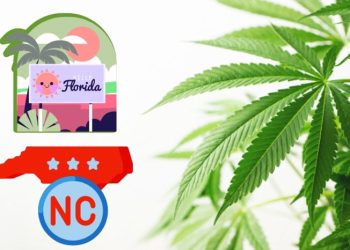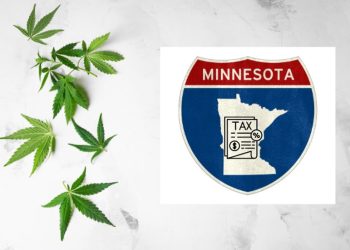Joining close to 30 other states targeting the hemp market, California is by far the largest jurisdiction to go after the legal sale of products containing intoxicating hemp cannabinoids.
The political and legal tidal wave crashing down on the intoxicating hemp derivative (IHD) sector in the United States continues to gain strength and momentum. Last week, Missouri Attorney General Andrew Bailey (R) opened an investigation into four businesses as part of a crackdown on items containing IHDs.
Similar to other states, the effort in Missouri centers on concern over the potential adverse health effects of hemp-derived intoxicating cannabinoids, such as the often vilified and widely misrepresented delta-8 THC.
Now, according to numerous media outlets, California, the supposedly progressive-minded haven, has added its massive stable of law enforcement and regulatory resources to combat the proliferation of IHD products throughout the nation’s most populous state. On Friday, several agencies issued notices targeting items containing IHDs, many of which include the well-known psychoactive cannabinoid delta-9 THC.
At the direction of Gov. Gavin Newsom (D), the California Department of Public Health (CDPH) and the Department of Alcoholic Beverage Control (ABC) are warning businesses that hold licenses under both agencies that the products are illegal and unsafe.
While those assertions have been challenged in the courts and shot down in other states like Texas and New York in the past couple of years, there is legitimate concern over the wide availability of IHDs in convenience stores, bodegas, CBD shops, and other typical retail outlets. Most concerning, however, is the number of online ads marketing the items, which are usually sold as gummies and other edible products.
Likewise, between 2021-2023, according to the national network of poison control centers, close to 8,000 people reported adverse effects after consuming IHD products, most notably those containing delta-8 and delta-10 THC, along with other less-known cannabinoids like THC-O-acetate, HHC, THCP, and others.
“Mislabeled and misleading products do not belong in the marketplace – especially when they put our kids’ health and safety at risk. Today, the state is taking action to protect Californians, especially our kids, as we work to further close loopholes and increase enforcement to prevent children from accessing hemp and cannabis products,” Newsom said in a statement from the Governor’s office.
– Statement by CA Governor Gavin Newsom (D) on IHDs
The governor’s actions were prompted by reports of “highly” intoxicating hemp beverages showing up in retail establishments across the state, “which could lead to them dangerously winding up in the hands of young Californians,” according to Newsom’s statement.
Hemp products are regulated separately from California’s legal medical and recreational cannabis markets and must comply with several consumer safety laws, including strict labeling requirements. It is a crime, under packaging, labeling, and other rules of the federal Sherman Act, an anti-trust statute covering food, drug, and cosmetic laws dating back close to 150 years, for companies to distribute or sell items that do not meet these labeling guidelines.
According to CDPH, “If an industrial hemp product package or label does not fully comply with these requirements, then it is mislabeled or misbranded and is therefore illegal.” Violations could result in the revocation of CDPH licenses, the agency said.
– Statement by the California Department of Public Health on IHDs
Similar notices were sent by ABC warning licensees that they are specifically banned from marketing or selling items that might be reasonably considered attractive to children.
Psychologists have long noted the power and danger of the “mob mentality.” They can highlight case after case of normally rational and civilized individuals suddenly getting caught up in the irrational and overpowering energy of the group, sometimes resulting in catastrophic consequences. The “Red Scare” of the 1950s is a classic example of well-intended people doing horrendous things to their fellow man over unfounded fears and accusations.
While no one is hopefully equating the hemp industry to the influence of communist Russia on the American people, there is an element of hysteria coloring the statements and actions of politicians, law enforcement officials, the judicial system, and regular citizens concerning the IHD market sector.
Most small—to medium-sized business owners in the American hemp industry are law-abiding and responsible. They comply with state and federal regulations and are just as committed to rooting out the bad actors in their industry as anyone associated with the issue.
As with most battles in this seemingly unending Civil War between Big Cannabis interests and the hemp industry, the fear and vitriol aimed at IHDs far outweigh the actual harm against the general public. This latest attack feels more like killing the patient to cure the disease, a disease that is much less harmful than those in charge of its elimination.
















